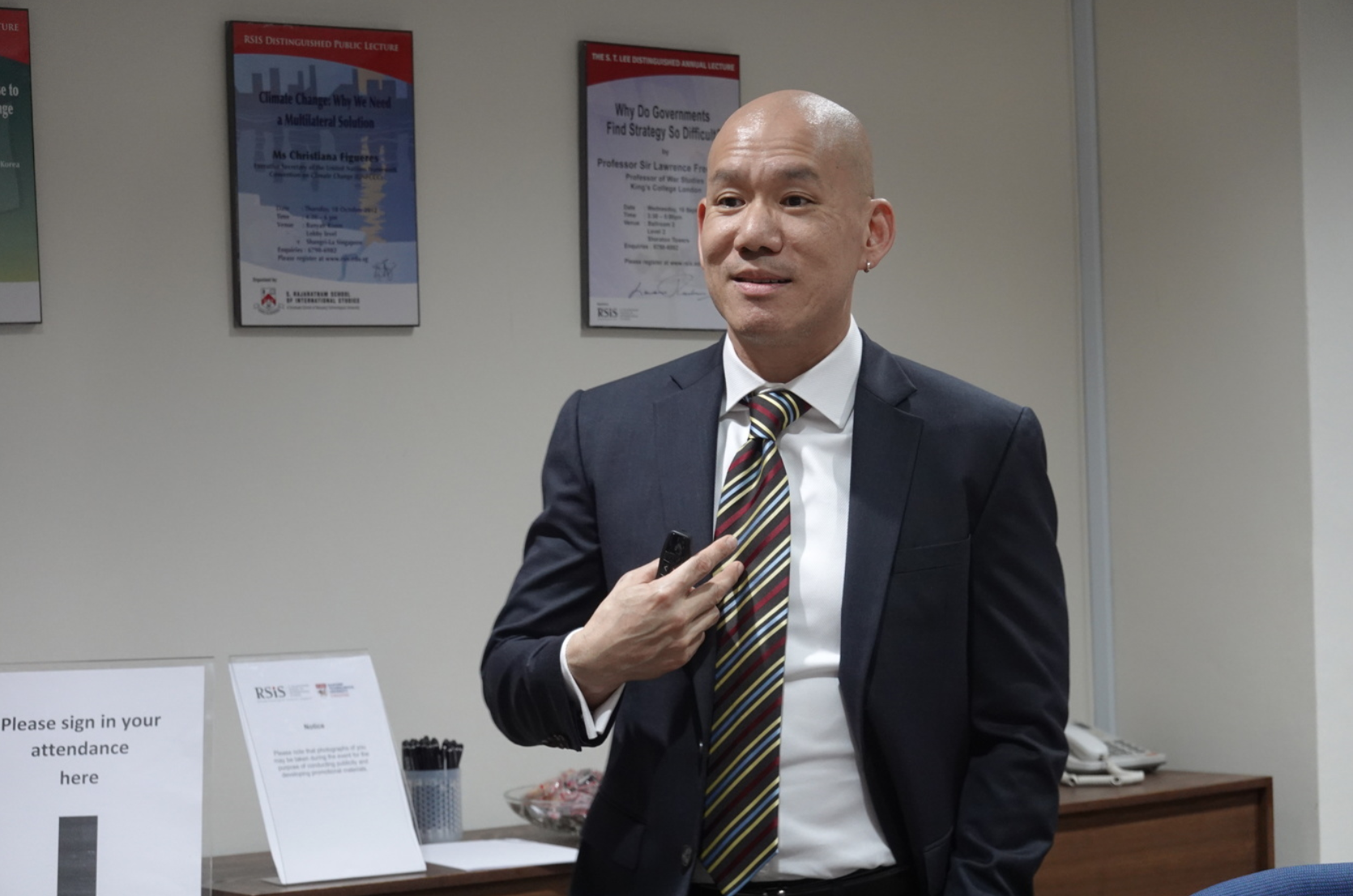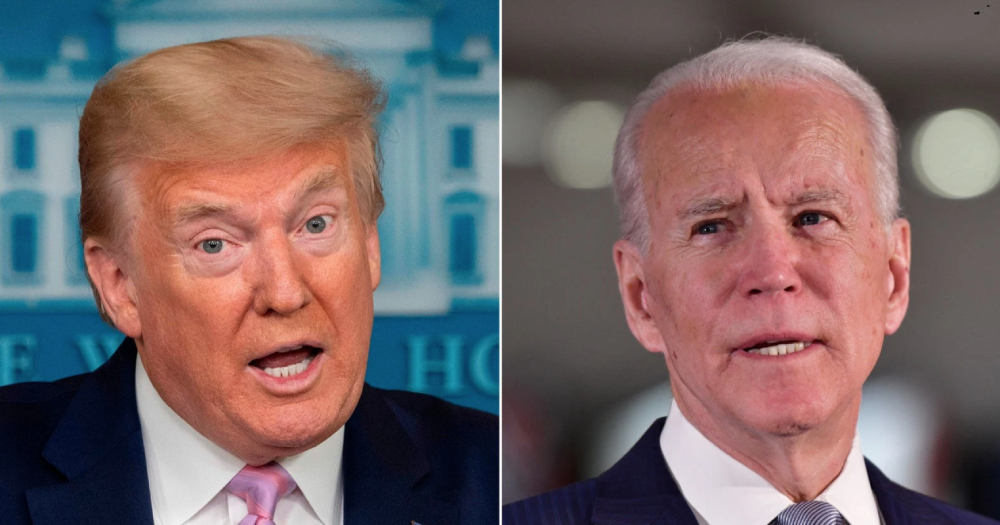The United States Presidential Election is less than two weeks away and if opinion polls are anything to go by, Democratic candidate Joe Biden is cruising to an election victory.
"Good evidence" to suggest 2020 will be different from 2016
The former vice president now has a double-digit polling lead over the incumbent, U.S. President Donald Trump, in several polls, although the lead has narrowed recently and Biden's campaign manager has been careful not to play up the numbers.
Many analysts and observers have since weighed in on the election, and posited that it would be hard for Trump to repeat his 2016 election victory, and that Biden is well on his way to becoming the 46th U.S. president.
But back in 2016, experts have failed to predict Trump's victory, even though final polls in the lead-up to the election indicate that Trump was ahead of Hillary Clinton by a few points.
Adrian Ang, a U.S. policy expert at Singapore-based RSIS who was formerly an Assistant Professor at Florida International University, while acknowledging the failed projection, is of the view that Biden will be the next American leader.
He tells Mothership that "while there are a good number of Democrats and pundits traumatised by the experience of 2016, there is good evidence to suggest that we will not see a repeat of 2016".
 Image via RSIS
Image via RSIS
Here are the reasons Ang gave for his projection:
1. Joe Biden is no Hillary Clinton
An important difference in this year's U.S. election is that Trump is now running against a candidate that was not as widely disliked as the last Democratic nominee.
Although Biden is a "gaffe machine", which he acknowledged himself, he was not viewed as unfavourably by voters as compared to Hillary Clinton, and this would be one of his biggest advantages in the race.
Ang explained how this could help him:
"If you look back at 2016, Clinton's unfavorables were as high as Trump's (55 versus 57).
Biden, by contrast, is much better regarded -- his favourable ratings are higher than Trump's (Biden has positive net favorables). They are also higher than Clinton's were in 2016.
Trump was able to use Clinton's unfavorables successfully in a choice election."
2. Trump judged on his performance as the incumbent
Ang continued to say that as much as the Trump campaign has tried to make 2020 a choice election between himself and Biden, it is not.
Instead, it is a referendum election over Trump's handling of the Covid-19 pandemic.
"As such, the short-term forces of the vote or the political environment is highly negative for the incumbent," Ang said.
He added:
"This is unsurprising given that the U.S. is in the continuing midst of its worst public health crisis in a century that has killed more than 200,000 Americans and infected more than 8 million others; the worst economic crisis since the Great Depression; and the worst racial and social unrest since the 1960s."
3. Trump focusing on his bases solely
Ang further said that Trump has "squandered his incumbency advantage and refused to run anything but a base-only re-election campaign".
Trump is said to be betting on repeating his performance in 2016 by focusing on his base, a strategy that can be risky, according to Associated Press.
This is because support for Trump in these bases appear to be weakening, and there is not much proof that he has gained greater support elsewhere.
Trump's focus on his base only has also come at the expense of swing voters, even though they have traditionally been targeted by presidential candidates.
Without a broad range of voters that is paramount to winning battleground states, he is therefore at a disadvantage.
4. More voters identify as Democrats & voting is mostly along partisan lines
Polls so far show that 2020 is also a party identification election, Ang said.
This means that Democrats are homogeneously for Biden, while Republicans are comparably united behind Trump, with Independents breaking for Biden, helping to make for an anti-Trump tide, he elaborated.
At the same time, there are very few truly undecided voters left.
Ang said:
"In a party identification election with an electorate that has more Democratic identifiers with few true Independents, Biden's large advantage in the polling averages is unsurprising and points to him being the likely winner."
5. Biden has a steady lead over Trump from the start
Even granting polling error of the magnitude of 2016 (which became exaggerated in its retelling), Biden's lead appears both large and durable enough to withstand that, Ang said.
He added that back in 2016, Clinton versus Trump "always looked and wanted to be a 2-point race, and so it turned out to be".
But 2020 looks different as Biden has led Trump from the start, and his "smallest lead was 4 points in the polling averages", which Ang said was "kind of boring in that regard".
Ang added that Biden is also over 50 per cent in several of the key battleground states, which is something that Clinton never managed to achieve.
And this is indicative that Biden's lead over Trump is "much more durable and robust".
6. More Americans disapprove of Trump than approve
Lastly, the single best indicator for whether a president is going to be re-elected is his job approval ratings, Ang said.
Trump is "underwater" at the moment, with more Americans disapproving (53.8 per cent) than approving (44.8 per cent) of the way he is doing his job.
And 45 per cent is a good approximation of what Trump can expect to obtain in the two-party share of the popular vote, which is not enough to trigger a potential "inversion" in the Electoral College, Ang opined.
Totally unrelated but follow and listen to our podcast here
Top image via Getty Images
If you like what you read, follow us on Facebook, Instagram, Twitter and Telegram to get the latest updates.
